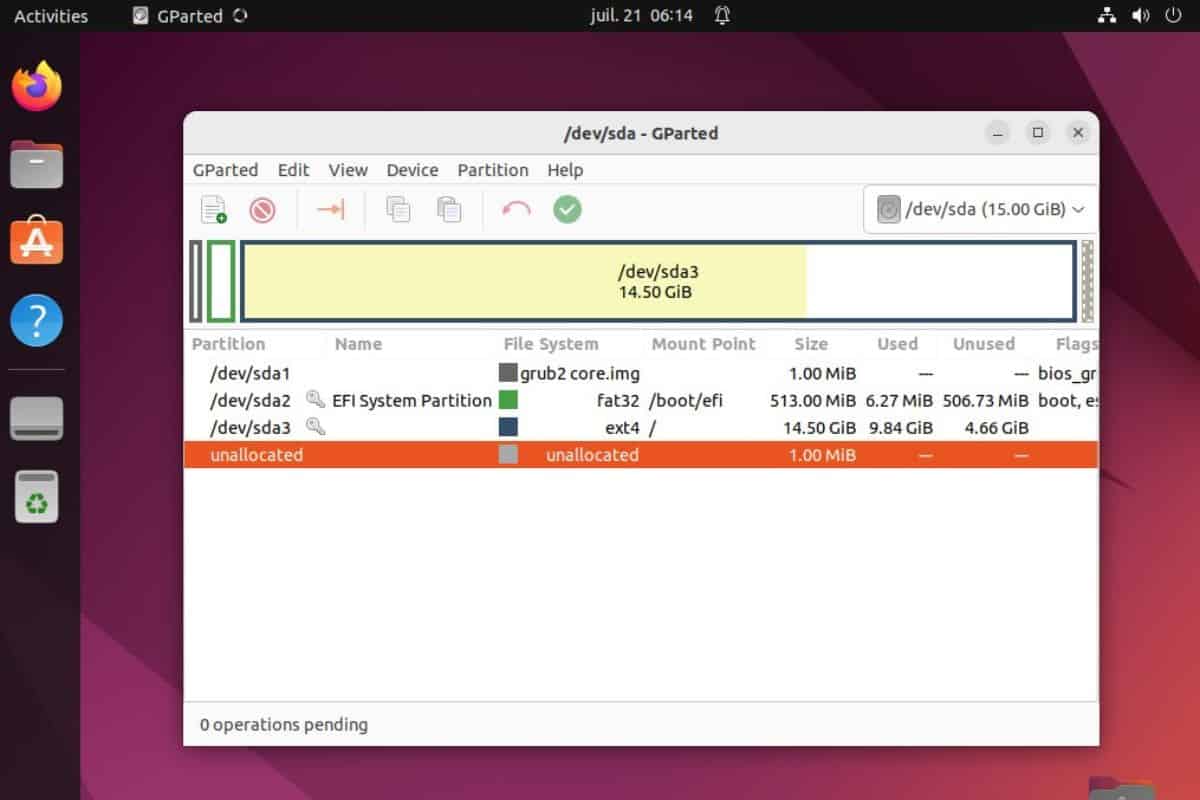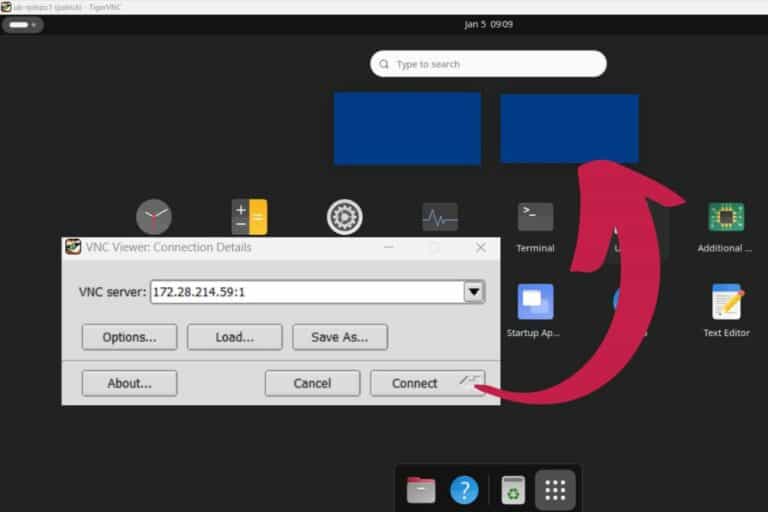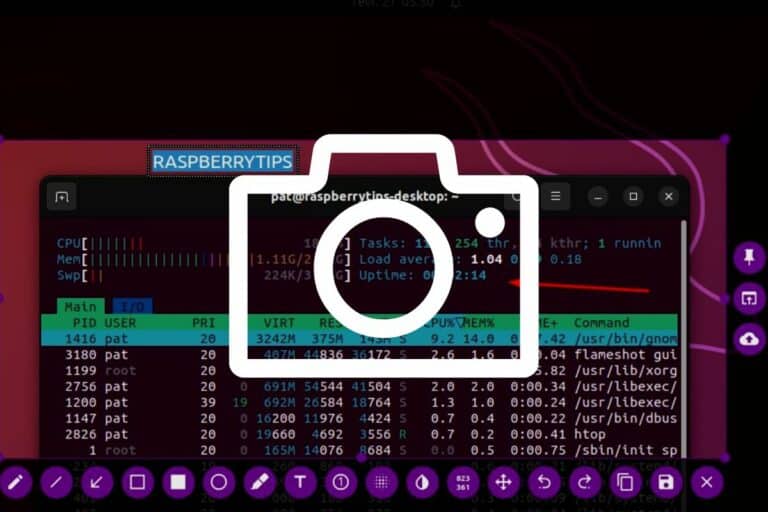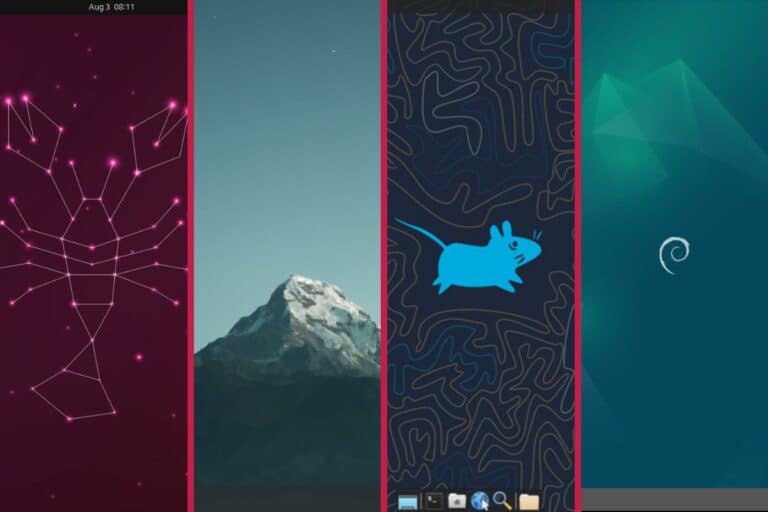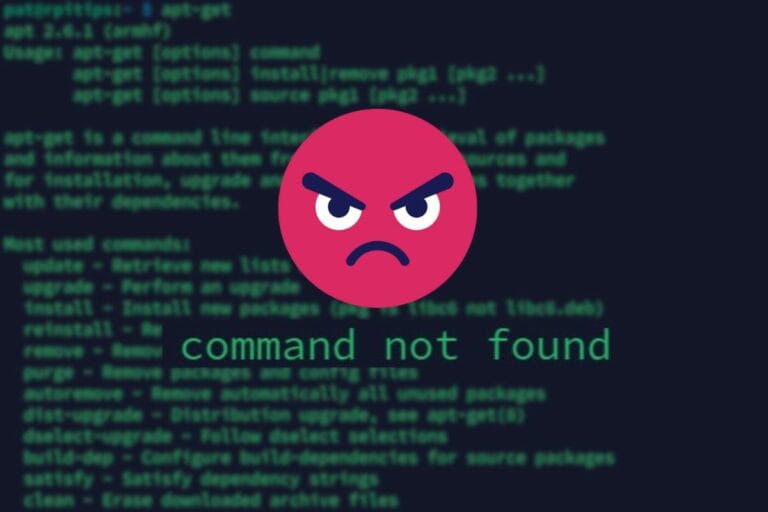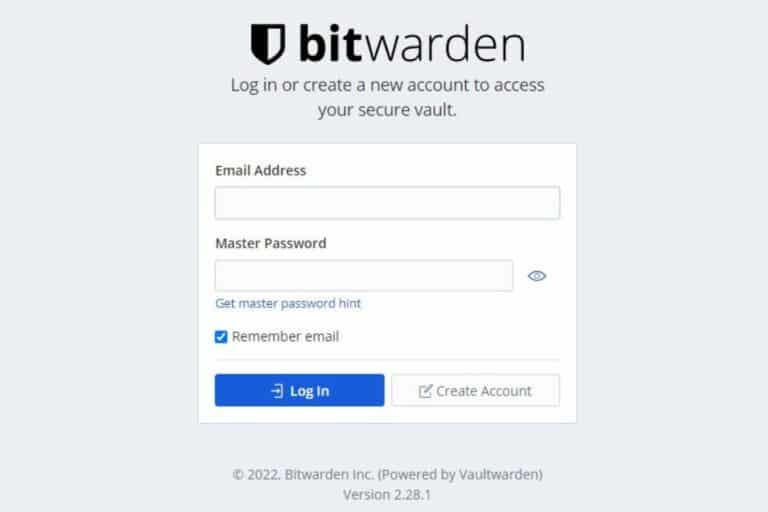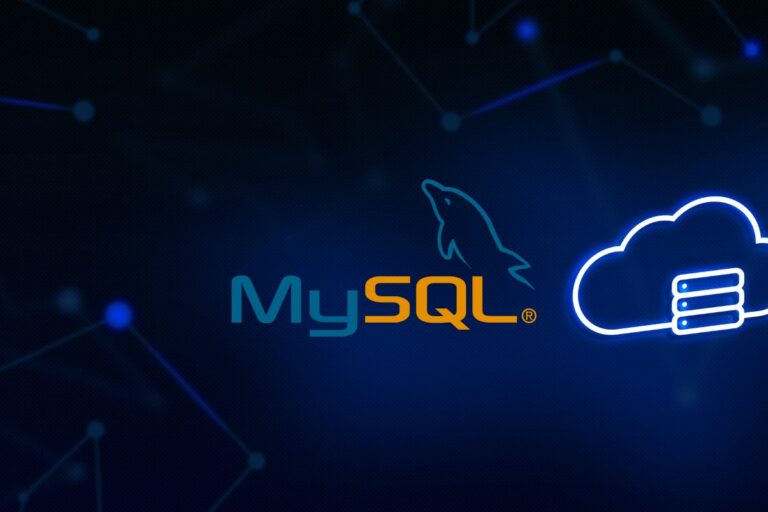How Much Space Does Ubuntu Need? (All versions)
Ubuntu is one of the most popular Linux distributions, but it’s not considered a lightweight option. You need a decent computer to run it, especially for the full Desktop edition. But how much space does Ubuntu really need?
According to the official website, Ubuntu’s minimum requirement is 8 GB for the main partition plus the size of your RAM and 250 MB to 1 GB for the boot partition. At least 15 GB is recommended to avoid any issues (the system is blocked when the partition is full).
These values are the official recommendations from Ubuntu, but I did some tests and can now share more details with you if you have a small hard drive you want to use for Ubuntu.
How much space does Ubuntu need on the USB drive?
Before installing Ubuntu on any computer, the first thing you need is a USB drive large enough to copy the installation files. This might be the first place where space can be an issue. How much space do you need to create the USB drive?
Ubuntu Desktop
The latest version of Ubuntu Desktop can be downloaded as an ISO file, that weighs around 3.5 GB.
Join Our Community!
Connect, learn, and grow with other Raspberry Pi enthusiasts. Support RaspberryTips and enjoy an ad-free reading experience. Get exclusive monthly video tutorials and many other benefits.
Download your exclusive free PDF containing the most useful Linux commands to elevate your skills!
Download now
I tried to flash it on a 4 GB flash drive, and it worked, so you don’t need a big USB drive for the installation.
Personally, I love this USB flash drive, I have a bunch of them (32 GB I think), and I use them all the time to test new operating systems. I highly recommend this brand if you need to order some (they are cheap and fast).
Ubuntu Server
The latest version of Ubuntu Server can be downloaded as an ISO file, that weighs around 1.5 GB. It looks like there is no compression for this file, so even a 2 GB USB drive should be enough to create the installation drive.

So, even if you are using an old USB drive to flash Ubuntu, the disk space shouldn’t be an issue for the installation. But let’s see how much space you really need on your computer to install Ubuntu.
How much space does Ubuntu really use after installation?
The main question when installing Ubuntu on a new computer is how much space you need on the main drive. This will depend on the version you are using, as Desktop (with a graphic interface) and Server (minimal with command line only) have different requirements.
I tested the latest version on my computer, with the default setup options, here are the results I got.
Ubuntu Desktop
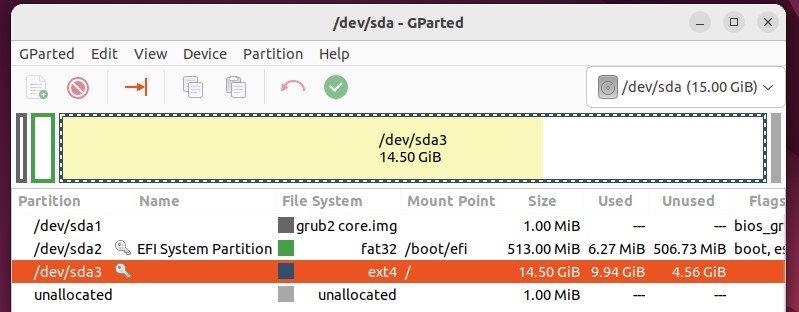
Ubuntu Desktop created 3 partitions on my system, using around 10 GB in total after doing the system updates:
- The main partition (/) uses almost 10 GB.
- The boot partition (/boot) uses approximately 500 MB.
I tested the installation on a 16 GB drive, so I have a bit of margin, but not that much. So I think the recommendation of the Ubuntu developers, saying you should have at least 15 GB available on your disk, is a good one.
Ubuntu Server
With the Ubuntu server, you need way less, as there is no graphical environment and fewer apps installed by default. I chose the normal Ubuntu server during the installation, not the minimalist one that needs even less space. Here is what I get after the installation:
Download your exclusive free PDF containing the most useful Linux commands to elevate your skills!
Download now

So, after installation, Ubuntu Server is using:
- 4.5Go for the main partition (/).
- 126M for the boot partition (/boot).
In this case, with 10 GB allocated during the installation, I have a decent margin to install small to medium applications and keep a bit of free space.
Let’s say if I add a web server or something like that, it will be ok. I will probably worry regularly about the remaining space, but at least it should work.
Download your exclusive free PDF containing the most useful Linux commands to elevate your skills!
Download now
How much space should you allocate to your new Ubuntu installation?
Now that you know the minimum space required to install Ubuntu, let’s say you have a bit of margin, how much space should you allocate to your new system? Well, it depends on how you’ll use this new installation.
Is 10 GB enough for Ubuntu?
10 GB can be enough for Ubuntu Server with a few applications and no swap partition. It won’t be enough for Ubuntu Desktop or a server that requires more than 5 GB of applications and log files.
Even for a small server, you won’t be comfortable with only 10 GB, as system updates and log files can quickly take up space after a few weeks or months of normal usage. So, keep this so small only to build a quick test environment.
In most cases, I would recommend at least 16 GB for Ubuntu, even for the Server edition.
Is 30 GB enough for Ubuntu?
A 30 GB disk drive is enough for Ubuntu Desktop and server. You’ll get 10 to 15 GB of margin to install applications and store files.
With 30 GB, a decent configuration could be something like:
- A swap partition, using around 4 GB.
This is especially useful if you don’t have a ton of memory on your computer. Can be more or less depending on the amount of RAM you have. - A boot partition, using 1 GB.
- The main partition (/), with about 25 GB.
10 GB will be used for the system files, keeping around 15 GB for your own applications and files.
30 GB starts to be comfortable enough for most use scenarios. But if you plan to use Ubuntu as your main computer, I would still try to get more disk space. It’s easy and not so expensive to plan the disk space when installing your system, but it can become complicated to add more space once everything is set up and has been used for a long time.
Is 50 GB enough for Ubuntu?
A disk with 50 GB of free space is generally enough for Ubuntu, whatever the use case might be. Except if you intend to keep movies or a large number of photos on your system, this should be comfortable, even for Desktop usage.
For daily usage, this would be my minimum recommendation as it allows you to keep enough space for the unplanned use of your disk. Even with system updates, version upgrades, large applications, and log files, you should have the time to see the disk filling and free up space when needed.
Remember that you can always extend a partition on Ubuntu if needed, or add another disk to your computer if possible. It’s just generally easier to plan this directly in the beginning. Never underestimate how much space you’ll use.
Download your exclusive free PDF containing the most useful Linux commands to elevate your skills!
Download now
If you are looking for exclusive tutorials, I post a new course each month, available for premium members only. Join the community to get access to all of them right now!
Additional Resources
Overwhelmed with Linux commands?
My e-book, “Master Linux Commands”, is your essential guide to mastering the terminal. Get practical tips, real-world examples, and a bonus cheat sheet to keep by your side.
Grab your copy now.
VIP Community
If you just want to hang out with me and other Linux fans, you can also join the community. I share exclusive tutorials and behind-the-scenes content there. Premium members can also visit the website without ads.
More details here.
Need help building something with Python?
Python is a great language to get started with programming on any Linux computer.
Learn the essentials, step-by-step, without losing time understanding useless concepts.
Get the e-book now.

